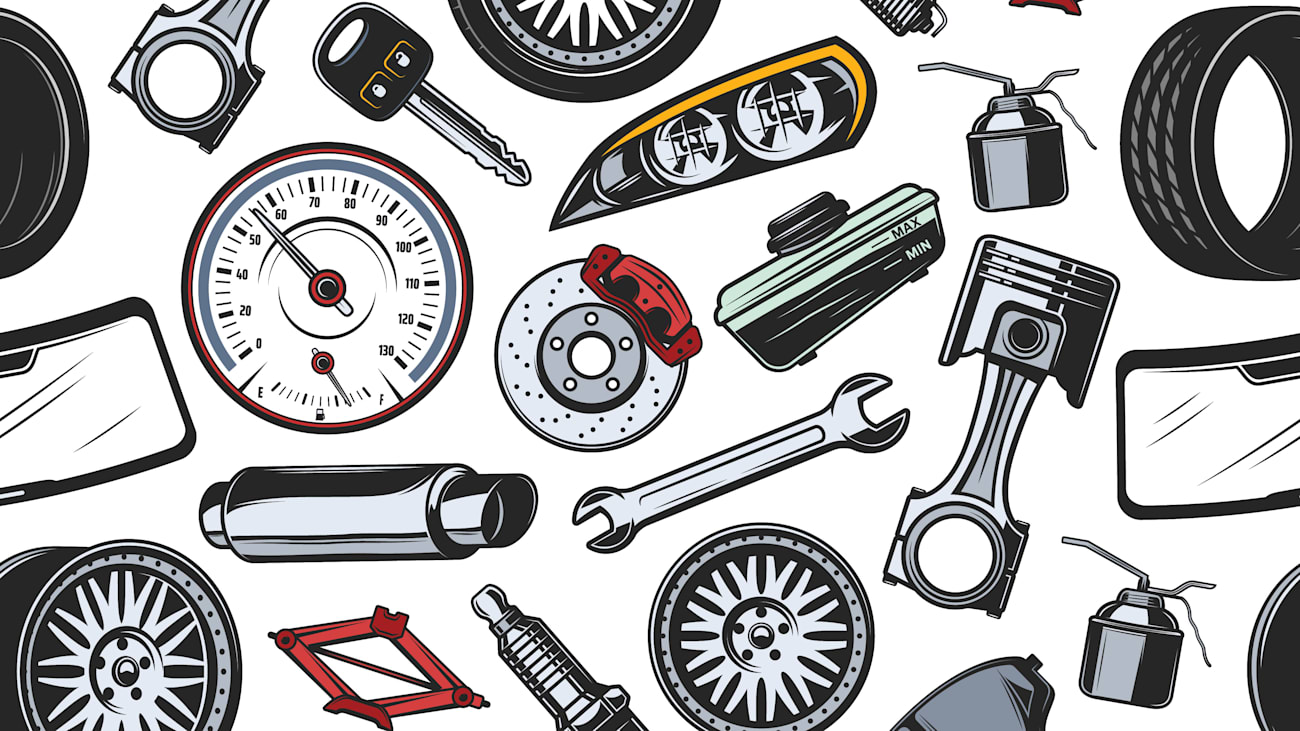
The Takata issue is a nail in the coffin for parts homogenisation
It once made sense that any component not a part of a car's identifiable characteristics might as well be shared across the industry. But now...
- shares
I can’t quite remember where I was reading it. From memory, it was maybe 10 years ago in the American muscle car bible, Hot Rod. I’d go back through my archive of magazines to look for it, but that’s one area the printed page isn’t great – search.
Anyway, while we often talk about the concept that time is of the essence, time doesn’t really matter so much here. One of the journos was commenting on his personal stash of ‘project’ cars. Not so different to most of us who have a few old cars gathering dust in a garage or shed somewhere.
Like most of us, too, his taste was varied. And it didn’t matter whether the car had a Chrysler, GM or Ford badge, if he liked it, he liked it. His stash was, therefore, quite varied. He’d obviously been doing some work on a few of them and had been replacing some pretty basic parts.
Things like wiper motors, starter motors, alternators, power-steering pumps, from memory. Might have been the recent COVID-19-enforced stay at home orders and my own project cars that reminded me of this column.
His issue was with the reality of different parts in areas where no-one could see them. So, let’s switch his example to an Australian-focused one. You’ve got a 2005 Holden Commodore, a 2012 Ford Falcon and a 2014 Toyota Camry in the driveway at home. All built in Australia, and in some cases, not even built that far away from each other.
We can now see, in full view, what happens when one supplier predominantly delivers its product to nearly every manufacturer.
It’s almost a guarantee that the starter motors will be different, the wiper motors will be different, and so on. All those components that you can’t see and don’t identify your vehicle as a Holden, Ford or Toyota therefore.
So, if you need to replace them, you need to buy different parts from different manufacturers at different prices that all do the same thing under a different bonnet.
The writer’s opinion was, wouldn’t it be great if every car, no matter the brand, used the same wiper motor, for argument’s sake? Certainly in the mainstream, not hyper-exotic stuff. It would, in theory of course, drive the price of spare parts down, too, and don’t we love the sound of that as consumers? Cheaper pricing is surely better for everyone.
At the time, I remember thinking there was sound logic to his argument, and as someone who has had to research and interpret countless different parts for different cars over the years, it actually made more than a little bit of sense.
I mean, who cares if your BMW has the same starter motor as a Citroen? Or if your Mercedes-AMG wiper motor is the same as that buried near the firewall of a Fiat? The argument makes even more sense in a way now in 2020 with electric vehicles.
Electric motors have no ‘soul’. A battery pack doesn’t make a difference to the physical signature of a car. You could put whatever brand battery, from whatever manufacturer, under the skin and buyers probably wouldn’t know or care what it was or where it came from.
I read the column a decade-or-so ago, agreed in silence then, and forgot all about it.
Until the Takata disaster took hold…

We can now see, in full view, what happens when one supplier predominantly delivers its product to nearly every manufacturer.
Who cares about an airbag? You don’t see it. You don’t even know exactly where it is mounted or how. You don’t see any branding. You just know it’s there. And you simply trust that in an accident, when you need it, it will work and do its job. The same as when you turn the key and hope the starter motor does its job.
We’ve seen hundreds of thousands of vehicles in this country affected, simply because one supplier dominated the market more than any other. And then, when the proverbial hit the fan and that supplier hit the wall, who was going to supply the replacement product in quick fashion? The dominoes started to fall quickly.
There’s an argument in here somewhere for local manufacturing, too. Imagine if we had an airbag supplier that was ready to ramp up production to assist in the supply of replacement airbags. It would be a win/win situation for everyone concerned.
Hindsight is obviously a wonderful thing – but imagine you have a mass recall on electric motors or battery packs. And imagine that every electric car has the same hardware under the skin. It would be another serious issue at that point.
So, while parts homogenisation might on the surface, at least, present itself to be a clever cost-saving exercise, I’m not sure the reality is all that clever. It’s fine when things are going well, but a serious issue when there is a bigger problem. Yes, a faulty starter motor isn’t even on the same planet as a faulty airbag in terms of serious problems, but you see the example.
If you work in the trade, if you’re a mechanic, work in spare parts or sell cars, comment below. I’d love to hear what those of you who deal with this every day think about it. I initially thought the theory was a sound one. I’d love to be able to keep one alternator in the shed at all times that worked across a bunch of my old cars, but that’s not the way it’s historically worked.
I’m not convinced it can work that way in the future, either.
MORE: CarAdvice's Takata coverage
MORE: CarAdvice opinion stories
1
2


nextprevious
The Takata issue is a nail in the coffin for parts homogenisation